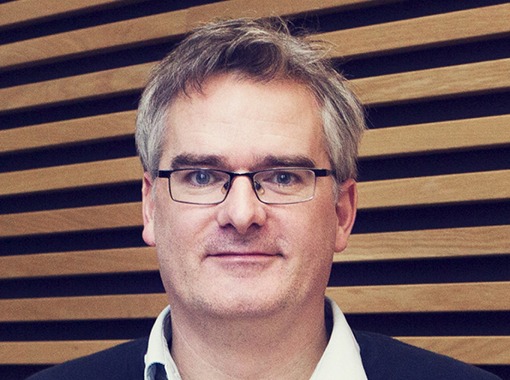Doctoral defence in Tourism Studies - Johannes Theodorus Welling

Aðalbygging
The Aula
Live stream: https://livestream.com/hi/doktorsvornjohannestheodoruswelling
Ph.D. student: Johannes Theodorus Welling
Dissertation title: Glacier tourism and climate change adaptation in Iceland
Opponents:
Dr. Christopher Lemieux, Associate Professor and John McMurry Research Chair in Environmental Geography, Wilfrid Laurier University, Ontario, Canada
Dr. Halvor Dannevig, Research Director at Western Norway Research Institute
Advisors: Dr. Þorvarður Árnason, Director of the University of Iceland's Research Centre in Hornafjörður and dr. Rannveig Ólafsdóttir, Professor at the Faculty of Life and Environmental Sciences, University of Iceland
Doctoral committee: Dr. Bruno Abegg, Professor at the Institute for systemic management and public governance, research center tourism and transport, University of St. Gallen, Switzerland
Chair of Ceremony:
Dr. Anna Dóra Sæþórsdóttir, Professor and the Head of the Faculty of Life and Environmental Sciences, University of Iceland
Abstract:
Climate change constitutes one of the most pressing challenges faced by tourism today. Tourism research on climate-induced environmental changes has contributed to an increase in knowledge about adaptation during the last decade. Despite a general recognition of the urgent need to adapt, as well as a large-scale scientific effort in this field underlining evidence of potential risk, the impacts of adaptation research on practices and policies in tourism appear to be relatively low.
To reduce the gap between adaptation research and practitioner action this thesis aims to increase the understanding of adaptation to climate-induced changes in nature-based tourism, by analyzing the adaptation processes and practices of tourism actors involved in glacier tourism. Glacier tourism is a highly relevant example of a type of tourism which needs to adapt to climate-induced environmental changes. Therefore, this thesis examines: what is the state-of-the-field knowledge concerning relationships among tourism, the glacial environment, and climate change; how do glacier tourism actors adapt to the current and future impacts of climate change; and how can glacier tourism actors’ engagement with science contribute to proactive adaptation.
The research conducted in this thesis uses a combination of two analytical approaches. An actor-oriented approach is employed to investigate tourism actors’ experiences and perceptions of climate change and their adaptation behavior. The other approach draws on transdisciplinary research, involving an active engagement of local stakeholders and scientists to form dialogues to combine knowledge bases, and to verify the social relevance of research on climate change adaptation. An embedded case study design was chosen due to its potential to integrate an actor-oriented approach with transdisciplinary research. The glacier sites of southeast Iceland form the case-study area wherein the adaptation processes of glacier tourism actors were examined. The case study constitutes the setting for the collection of empirical data by means of quantitative methods, such as literature review and visitor surveys, as well as qualitative methods, such as interviews and participatory scenario workshops.
The results reveal a limited but growing body of scholarly work that examines the relationships between tourism, glaciers, and climate change impacts and responses. The existing work lacks however important data concerning the motives, preferences, experiences, and behaviors of actors in glacier tourism in general and specifically in the context of climate change. The results of the analysis of tourism actors’ adaptation practices furthermore show that climate change has already resulted in several impacts on glacier sites and that operators have responded to these implications in the form of a wait-and-see strategy combined with ad-hoc reactive adaptation. On the other hand, the results also show that visitors to glacier sites are more heterogeneous in their responses to future climate change–induced impacts. Furthermore that adaptation processes of glacier tourism actors are shaped by the interaction of actors’ attributes of agency, such as risk perception, concerns, motivations and interests, with structural elements of the glacier destination systems, such as type of visitation implication, prevailing economic rationale or lack of effective climate change institutions. Lastly, the results stress the development and application of a participatory scenario planning process, as a form of science-practitioner engagement, to be a valuable tool to support the adaptation planning of glacier sites through sharing knowledge, elaborating on long-term changes and associated uncertainties, and exploring proactive adaptation options.
Climate is only one of the drivers of change that determine the development of glacier tourism. It is thus concluded that climate change implications cannot be understood as isolated factors; rather, they should be viewed as constituting interconnected and cumulative effects on socioeconomic and natural environments. Mainstreaming climate change adaptation into current destination planning and management or integrating climate change adaptation with related science fields, such hazard reduction research or sustainability science, would thus provide more promising approaches than studying climate change adaptation in isolation.
About the doctoral candidate:
Johannes (Hans) Welling was born in 1970 in the Netherlands. He graduated with a MA degree in Political Social science from the University of Amsterdam in 1995 and a MSc degree in Environment and Natural Resource Management from the Free University of Amsterdam in 2009. From 2010, Hans took part in several national and international tourism research projects for the Hornafjörður Research Center and the Icelandic Tourism Center, and still works as a part-time teacher at the University of Iceland. At this moment, Hans is the project coordinator for the Icelandic part of the NPA project SCITOUR (Scientific Tourism). Since 2009, Hans lives with Ingibjörg Kristinsdóttir and their two children in Reykjavik.
Johannes Theodorus Welling



